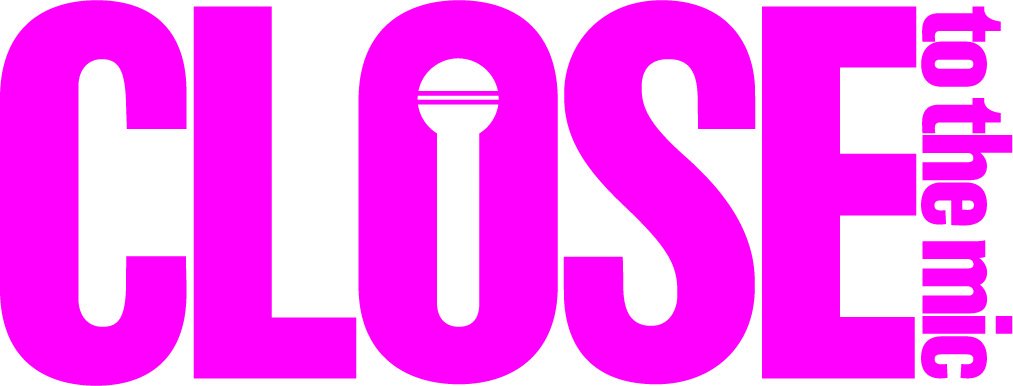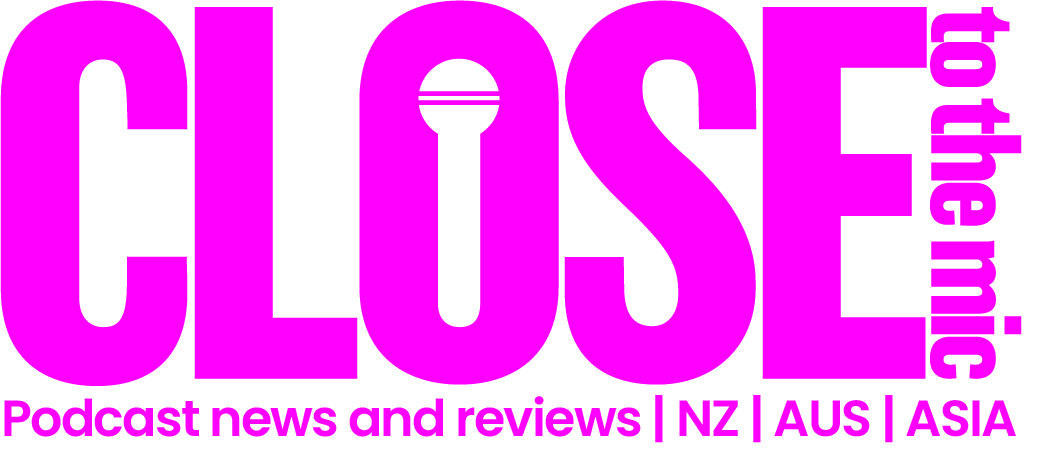Capturing the Rise of Child Abuse on the Dark Web
Warning: The content in this article contains discussions of child abuse and may not be suitable for all readers.
The community of criminals on the dark web is growing fast. Image: Lalesh Aldarwish
By Sonia Yee
It’s 8am, New South Wales time on a Saturday morning, and I’m about to interview Akhim Dev, a documentary maker responsible for LiSTNR’s gripping true crime series, The Children in the Pictures.
He’s just back from Ukraine, shooting a new documentary about an Australian surgeon donating his services to help victims of the war.
As we talk, Dev is on the road driving to see his daughter and every now and then, the sound cuts out. But I get the feeling Dev is used to doing interviews from his car, and even in the podcast he is sometimes speaking as he drives. His voice is warm, grounded and earthy. He’s the kind of guy who just tells it like it is.
I’m eager to speak to him about what it means to pick up gold at the New York Festivals Radio Awards under the highly coveted category, Narrative Documentary. In order to win the top honour, the level of work has to be impactful, and The Children in the Pictures is that, and more.
But first, a bit of background because context is everything. The Children in the Pictures is gripping and dark with all the hooks and tension of any good story of the genre. But due to the nature of the topic, at times it’s also difficult to hear.
Documentary maker, Akhim Dev. Image supplied.
The Children in the Pictures covers the worst cases of child abuse happening on the dark web and follows Queensland’s ‘Task Force Argos’ - the police investigations unit who are making inroads to take these criminals down.
If you’re considering listening to the series, be prepared because the stories will stay with you long after listening. The fact of the matter is, these crimes and abuses against children are most likely happening as you read this. None of us wants to believe the unthinkable is happening to the most vulnerable members of society who have no power to stop their abusers.
But today, with the speed of the internet, online communities of child sex offenders are forming - and are on the rise. It’s there that they exchange content documenting the most horrific acts of sexual abuse against children with contributors boasting of their exploits in the hopes to rise to the top of these communities where the imagery is shared with paedophiles from around the world.
Documentary maker Akhim Dev was conducting research for another series when he found himself speaking to high-risk offenders who were in and out of the prison system when there was mention of the rise of child sex offenders on the dark web. Dev says he was sceptical, but also in a state of disbelief.
Online predators are on the rise. Image Junior Texeira
“Even the men were shocked at how it has exploded across the Internet and were telling me about groups of 10 to 20 thousand abusers forming these social networks where their core interest was the sexual abuse of children,” he says.
Dev conducted interviews with Queensland’s Task Force Argos whose job it is to infiltrate these member sites. By 2014, Argos had taken down 45 thousand active members. The spine chilling aspect of joining these communities is that members need to prove themselves by uploading a continuous supply of child abuse material.
Since 2014, the numbers of these groups and their membership has exploded, and more recently, Argos has taken down a network with more than three million active members. When Dev tells shares the numbers, I get shivers down my spine and I’m almost shaking.
So, who are the offenders, and where are they coming from?
“It's all walks of life, all socioeconomic backgrounds, but the crime that we're focusing on is just one aspect - internet facilitated crimes against children - these images are real kids, and they're all victims,” he says.
As a mother, imagining the prospect of something happening to my own child or another of the same age (or even younger), is terrifying. Dev also has two daughters, one was very young when he began working on the series. At the top of the podcast he states very clearly that he’s a dad, so as a listener that also lingers.
“These communities flourish by trading the material online, and its reach around the world is still growing, so we're nowhere near the tipping point,” Dev says.
He tells me that Argos has identified a large percentage of users on these sites from Australia and New Zealand.
“Now does this mean that Australian’s naturally gravitate towards child abuse, or does this just mean that we've got a good Internet connection - I think it's the latter,” Dev says.
The Children in the Pictures was released in November 2022, and when I speak to Dev it’s only a matter of days after the news has come out about the New York Festivals Radio Awards. So how does he feel about the recognition?
“I get shocked when I’m given presents on Father's Day, so I was totally blown away, of course. I know people always use words like humbling, but you know, it truly is.”
Dev says he is most proud of Task Force Argos, the police in charge of the unit. His experience of working alongside them goes back further than the podcast when he began working with them eight years ago on a documentary film on the same topic, which received international acclaim.
He makes it clear that the documentary series and the podcast are two very separate projects, rather than one spring-boarding off the other to repurpose the content.
“The documentary is really a kind of expositional 20-year history of the worst aspects of the internet, and how one Queensland police force has risen to the top, internationally, in being able to crack all the codes and encryptions to find, identify, and rescue children,” he says.
The podcast instead, looks at one particular case where Task Force Argos end up infiltrating and taking over a child abuse network. But in doing so, the police officers need to “become evil and imitate the abusers to socially engineer the take down”.
The podcast also addresses the psychological impact of the work on the officers in the unit. But Dev didn’t come away unscathed either. Having a first-hand insight into the abuses taking place has been life changing for him: Dev was privy to a lot of information and content that he will never ever be able to ‘unsee’.
The stress of covering the stories caused the documentary maker’s hair to turn completely white, and Dev describes his beard starting off as “George Clooney salt-and-pepper turning to turn Santa Claus white”, which is common for those experiencing PTSD or shock.
The level of distress also impacted his mental health.
“Weird things started happening, like I couldn't hear my own daughter cry even though she'd be in the next room. It was kind of like an auditory hallucination,” he says.
Not long afterwards, he had a serious seizure.
“It was after having seen some of the worst material where Argos even doubted whether they were going to find the child alive again. Unfortunately, that child was the same age as my youngest daughter at the time,” Dev says of how it hit very close to home.
These days, he practices a particular kind of transcendental meditation, which helps people diagnosed with PTSD.
“I'm a member of the David Lynch Foundation, and that saved my bacon, it really did. It's given me the tools to be able to connect with myself and find a means to heal,” he says.
It’s hard to know whether Dev will ever return to who he was before he began covering making the documentary and the podcast. But the raw reality is that abusers need to have access to a child in order for the abuse to be carried out in the first place.
“Unfortunately, the people who have the most access to children are parents, so we have to accept the fact that a lot of this is happening at home,” he says.
Today, online predators are also gaining access to children and grooming them through mobile devices, collecting material in “staggering amounts,” according to Dev.
“The abusers know how to find and groom children - it’s like shooting fish in a barrel.”
Dev worked with Australian network LiSTNR to produce the series, and says it was gutsy for them to pick up the podcast. But he’s pleased with the recognition the series has received, including success on Spotify and landing on Apple’s top 20 charts.
“At its heart, it's just an amazing cat and mouse true crime story, but ultimately, the greater purpose is that we wanted parents to know what was happening with their children. I believe that we all should have a right to know what's happening on our social networks,” says Dev of wanting to make a difference.
Listen to the first two episodes above, and head to the full series here.
If you or anyone you know needs help, please contact:
Australia:
• Lifeline on 13 11 14
• Kids Helpline on 1800 551 800
• Suicide Call Back Service on 1300 659 467
New Zealand:
Safe to Talk on 0800 044 334 or free text 4334 for help to do with sexual harm. Available 24/7 and staffed by trained counsellors.
Suicide Crisis Line on 0508 TAUTOKO (0508 828 865). The Suicide Crisis Line is a free, nationwide service available 24 hours a day, 7 days a week.
SPARX on 0508 4 SPARX (0508 477 279) or free text 3110. SPARX is a self-help e-therapy tool for rangatahi aged between 12 and 19 and also offers a helpline.
For more head to Helplines in New Zealand





